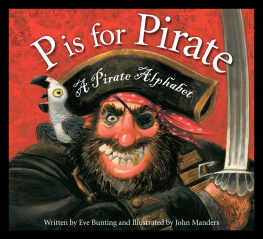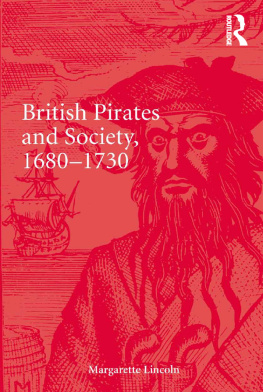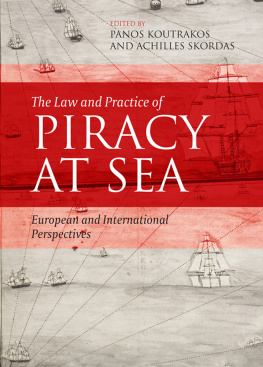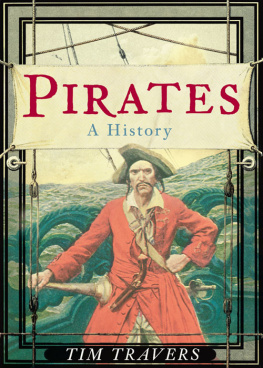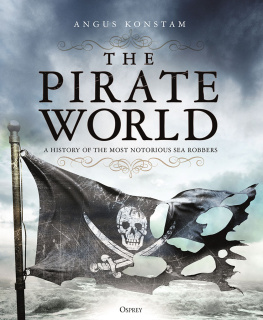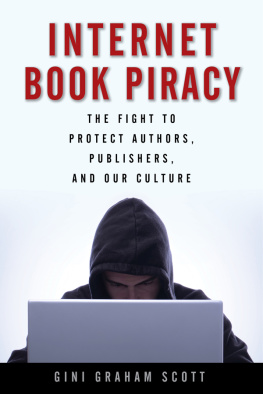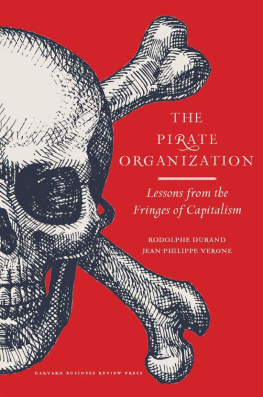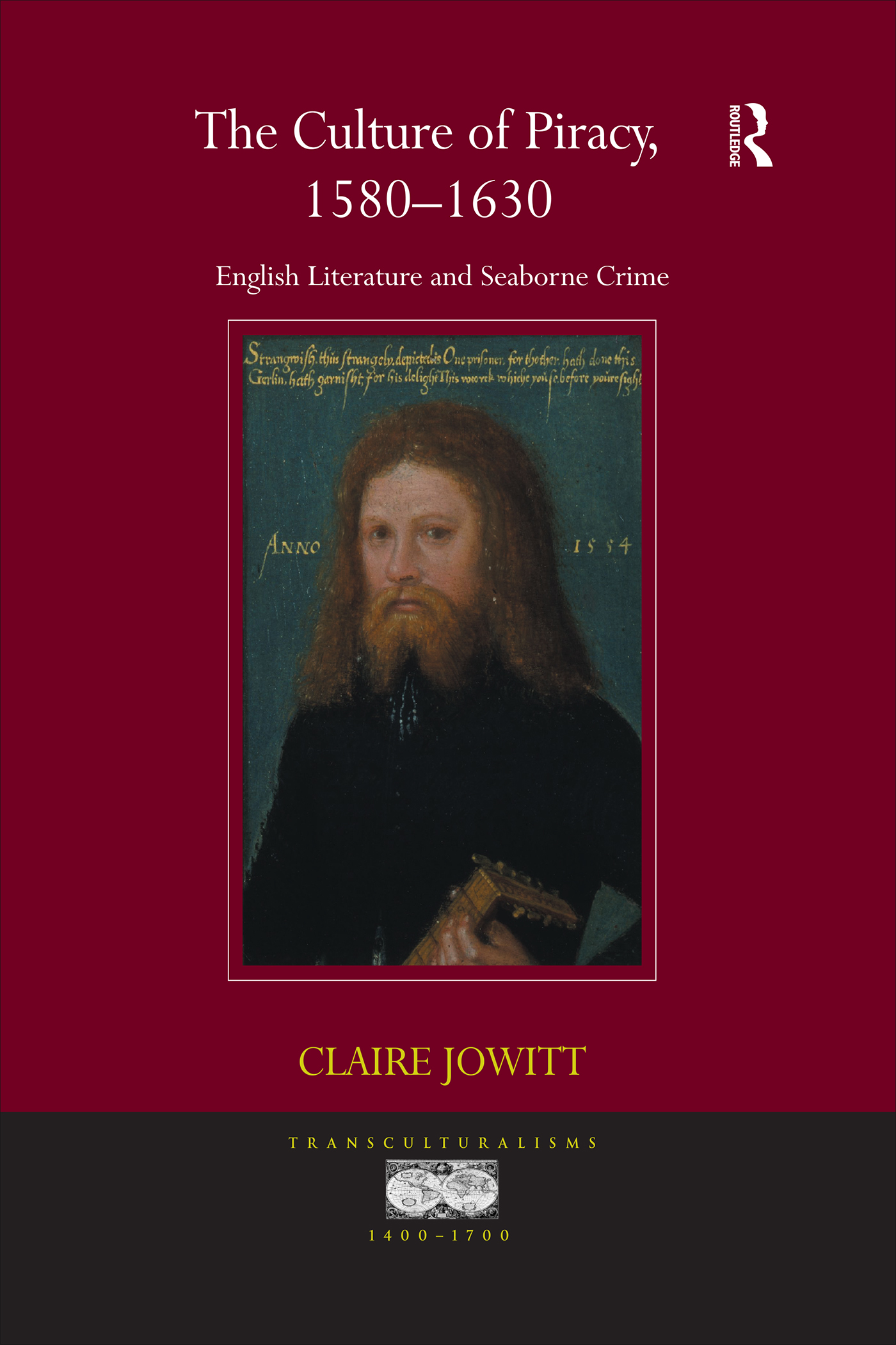Contents
THE CULTURE OF PIRACY,15801630
Listening to what she terms unruly pirate voices in early modern English literature, in this study Claire Jowitt offers an original and compelling analysis of the cultural meanings of piracy. By examining the often marginal figure of the pirate (and also the sometimes hard-to-distinguish privateer), Jowitt shows how flexibly these figures served to comment on English nationalism, international relations and contemporary politics. She considers the ways in which piracy can, sometimes in surprising and resourceful ways, overlap and connect with, rather than simply challenge, some of the foundations underpinning Renaissance orthodoxies absolutism, patriarchy, hierarchy of birth, and the superiority of Europeans and the Christian religion over other peoples and belief systems.
Jowitts discussion ranges over a variety of generic forms including public drama, broadsheets and ballads, prose romance, travel writing, and poetry from the 50-year period stretching across the reigns of three English monarchs: Elizabeth Tudor, and James and Charles Stuart. Among the early modern writers whose works are analyzed are Heywood, Hakluyt, Shakespeare, Sidney and Wroth; and among the multifaceted historical figures discussed are Francis Drake, John Ward, Henry Mainwaring, Purser and Clinton.
What she calls the semantics of piracy introduces a rich symbolic vein in which these figures, operating across different cultural registers and appealing to audiences in multiple ways, represent and reflect many changing discourses, political and artistic, in early modern England.
The first book-length study to look at the cultural impact of Renaissance piracy, The Culture of Piracy, 15801630 underlines how the figure of the Renaissance pirate was not only sensational, but also culturally significant. Despite its transgressive nature, piracy also comes to be seen as one of the key mechanisms which served to connect peoples and regions during this period.
Transculturalisms, 14001700
Series Editors: Mihoko Suzuki, University of Miami
Ann Rosalind Jones, Smith College
Jyotsna Singh, Michigan State University
This series will present studies of the early modern contacts and exchanges among the states, polities and entrepreneurial organizations of Europe; Asia, including the Levant and East India/Indies; Africa; and the Americas. Books will investigate travelers, merchants and cultural inventors, including explorers, mapmakers, artists and writers, as they operated in political, mercantile, sexual and linguistic economies. We encourage authors to reflect on their own methodologies in relation to issues and theories relevant to the study of transculturism/translation and transnationalism. We are particularly interested in work on and from the perspective of the Asians, Africans, and Americans involved in these interactions, and on such topics as:
Material exchanges, including textiles, paper and printing, and technologies of knowledge
Movements of bodies: embassies, voyagers, piracy, enslavement
Travel writing: its purposes, practices, forms and effects on writing in other genres
Belief systems: religions, philosophies, sciences
Translations: verbal, artistic, philosophical
Forms of transnational violence and its representations.
Also in this series:
Material and Symbolic Circulation between Spain and England, 15541604
Edited by Anne J. Cruz
Glass Exchange between Europe and China, 15501800 Diplomatic, Mercantile and Technological Interactions
Emily Byrne Curtis
Writing a New France, 1604-1632 Empire and Early Modern French Identity
Brian Brazeau
Emissaries in Early Modern Literature and Culture Mediation, Transmission, Traffic, 15501700
Edited by Brinda Charry and Gitanjali Shahani
Literatures of Exile in the English Revolution and Its Aftermath 16401690
Edited by Philip Major
First published 2010 by Ashgate Publishing
Published 2016 by Routledge
2 Park Square, Milton Park, Abingdon, Oxon OX14 4RN
711 Third Avenue, New York, NY 10017, USA
Routledge is an imprint of the Taylor & Francis Group, an informa business
Copyright Claire Jowitt 2010
Claire Jowitt has asserted her right under the Copyright, Designs and Patents Act, 1988, to be identified as the author of this work.
All rights reserved. No part of this book may be reprinted or reproduced or utilised in any form or by any electronic, mechanical, or other means, now known or hereafter invented, including photocopying and recording, or in any information storage or retrieval system, without permission in writing from the publishers.
Notice:
Product or corporate names may be trademarks or registered trademarks, and are used only for identification and explanation without intent to infringe.
British Library Cataloguing in Publication Data
Jowitt, Claire.
The culture of piracy, 15801630: English literature and seaborne crime. (Transculturalisms, 14001700)
1. English literature Early modern, 15001700 History and criticism. 2. Crime in literature. 3. Pirates in literature. 4. Politics and literature England History 16th century. 5. Politics and literature England History 17th century. 6. Privateering History 16th century. 7. Privateering History 17th century. 8. Commerce in literature.
I. Title II. Series
820.93556-dc22
Library of Congress Cataloging-in-Publication Data
Jowitt, Claire.
The culture of piracy, 15801630: English literature and seaborne crime / by Claire Jowitt.
p. cm.
Includes bibliographical references and index.
ISBN 978-1-4094-0044-8 (alk. paper)
1. English literatureEarly modern, 15001700History and criticism. 2. Crime in literature. 3. Pirates in literature 4. Politics and literatureEnglandHistory16th century. 5. Politics and literatureEnglandHistory17th century. 6. PrivateeringHistory16th century. 7. PrivateeringHistory17th century. 8. Commerce in literature. I. Title.
PR428.C74J69 2010
820.93556dc22
2010010548
ISBN 9781409400448 (hbk)
Contents
From the anonymous A True Relation, of the Lives and Deaths of the two most Famous English Pyrats, Purser, and Clinton; who lived in the Reigne of Queene Elizabeth (London: John Oakes, 1639), Sig. C5. Reproduced by the kind permission of The Bodleian Library, University of Oxford.
Crispin Van de Passe, Elizabeta D.G. Anglis, Francis, Hibernis, et Virginis Regina Christians Fidei Vnicum Propugnaculum, 1596 The British Museum.
John Hawkinss Coat of Arms, 1568. College of Arms MS. Miscellaneous Grants 1, f. 148. By permission of The College of Arms, London.
Henry Strangwish (or Strangways) by Gerlach Flicke, 1554 National Portrait Gallery, London.
The subject of this book pirates has been a delight to explore, though it has taken more years than I care to count to write it: when I began Pirates of the Caribbean was simply a theme-park ride. My first acknowledgement is to my colleagues, past and present, at Aberystwyth University and Nottingham Trent University, who have supported me through the books development. From my time in Aberystwyth I would particularly like to thank Peter Barry and Sarah Prescott, Christoph Lindner, now of the University of Amsterdam, Liz Oakley-Brown, now at Lancaster University, and David Shuttleton, now at Glasgow University; from NTU, I am grateful for the advice and friendship of Tim Fulford, Georgina Lock, Colm MacCrossan, Stan Smith, and David Worrall. It was my privilege to work closely with Michael Murphy (19652009) in 20062007, as we both brought our respective book projects towards their conclusion. Fellow travellers working at NTUs Centre for Travel Writing Studies, Rob Burroughs, Betty Hagglund, Carl Thompson, and Tim Youngs, have provided a stimulating environment in which to research. I am also grateful to the Research Committees at Aberystwyth and NTU for granting me leave at key stages of the project, and for the institutional support which enabled essential archive work and research visits. I acknowledge the faith my Heads of Department and Academic Team Leaders have had in my work: in chronological order, Lyn Pykett, Tim Woods, Lynne Hapgood, and Nahem Yousaf.



